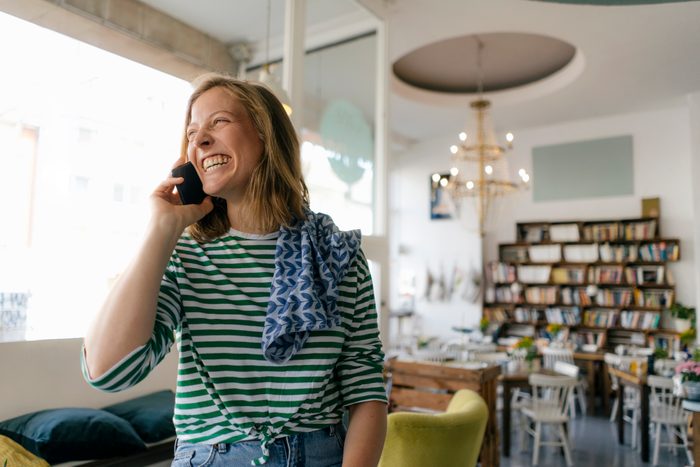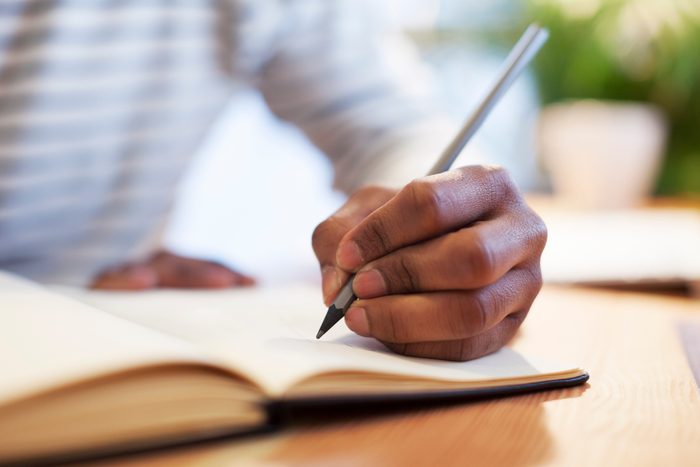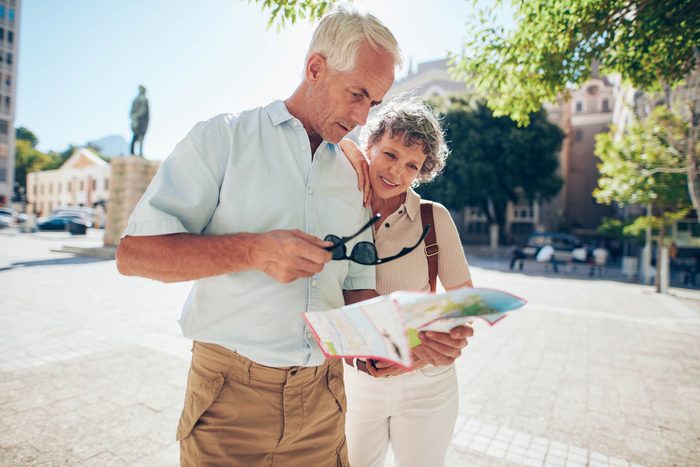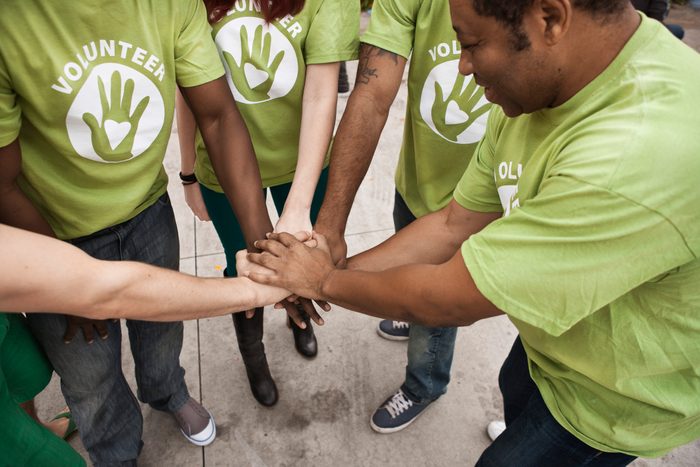How to be happier
No one can be happy-go-lucky 100 percent of the time. But sometimes we all struggle with feeling gloomier than we would like to. Even though it’s challenging to be positive, especially during this coronavirus pandemic, you can set yourself up for more joy with these tips in mind.

Set your mind on being happy
Being happy is not about what you have or what happens to you, but how you react to it. “Happiness is definitely a choice,” says Caroline Adams Miller, a professional coach, speaker, and best-selling author of Your Happiest Life Workbook. “Research on identical and fraternal twins separated at birth, among other studies, shows that at least half of our well-being is directly tied to what we choose to think about and do on a daily basis.” Another study, the Cornell Legacy Project, surveyed “wise elders” to find out their life lessons, one of which was that waiting to become happy doesn’t work. Instead, greeting each day with a good attitude puts us in control of our own positive mindset. (Learn about these 13 things psychologists wish you knew about happiness.)

Do something for someone else
Wondering how to make yourself happier? Give back. Doing something for others is a great way to boost your spirits—and donating time gives a bigger boost than giving money, according to a study in the International Journal of Happiness and Development. “We did a study in which we asked people to do acts of kindness—one group did acts of kindness for others, another group did acts of kindness for the world such as picking up litter, and a group did things for themselves, like getting a massage or having a nice lunch,” says Sonja Lyubomirsky, PhD, a psychology professor at the University of California, Riverside, and the author of The How of Happiness. “We found that only doing acts of kindness for others or the world, especially for others, made people happier.” Whether you volunteer formally or simply shovel your elderly neighbor’s driveway, doing things for others gives you perspective on your own life and helps you feel you’re making a difference.

Call a friend
Humans are pro-social beings, so having real, meaningful relationships in life is crucial to feeling happy. So make time each day to call or connect with a friend or family member. “High quality, close relationships are fundamentally important for well being,” says Brett Major, a researcher in the University of North Carolina Chapel Hill’s Positive Emotions and Psychophysiology (PEP) Laboratory. Plus, feeling we’ve helped out someone we love makes us feel good as well. Strong ties can also help us feel more secure when something bad happens—research shows those in tight-knit communities fare better when faced with a crisis.

Find meaning in your pursuits
When we think, “once I achieve this goal, I’ll be happy,” we’re setting ourselves up for disappointment. With success, it’s the journey, not the destination that’s fulfilling. “People don’t succeed at their goals and then become happy; being happy or emotionally flourishing first is what sets the stage for someone to become successful,” Miller says. “The research shows that when we do things that add meaning, purpose, and even pleasure to our lives, happiness is the by-product that allows us to thrive and grow in positive, proactive ways.” Even just getting caught up in an activity, called “flow” in psychology or being “in the zone,” makes you feel energized and fulfilled, whether you’re painting furniture, writing music, or just going through the junk drawer in the kitchen. “Accomplishing tasks and mastering skills helps people feel more confident in themselves and their abilities, which ultimately fuels well-being,” Major says.

Look back—and forward—with rose-colored glasses
Stewing over something you regret just breeds unhappiness. Instead, some research published in Health Psychology has found that focusing on good memories, especially those from childhood, is linked to a healthier life. “In two minutes, write down every detail you can remember about a meaningful event from the day before,” suggests Michelle Gielan, a former CBS News anchor who’s now a positive psychology expert and the bestselling author of Broadcasting Happiness. “Yesterday’s high points can be today’s fuel for happiness.” This can even have an effect on our overall health: Gielan points to a 2016 study in the JAMA Network Journals that found that patients suffering from chronic pain who did this for six months were able to reduce their pain meds. Finding the good in our past can help us look to the future with hope instead of trepidation.

Cultivate gratitude
Actively cultivating a feeling of gratefulness is one of the best ways to get happier. “There’s a lot of research on trying to appreciate what’s good about your life rather than focusing on what you don’t have or what other people have and you want,” says Dr. Lyubomirsky. “We have people write gratitude letters to their mother, for example, and not even share them. They write out all the things Mom has done, and just the process alone makes you really appreciate everything.” This can make you feel closer and even improve your bond—especially if you decide to share your gratitude letter. “Genuine expressions of gratitude help build new relationships or strengthen existing ones by demonstrating to others that we appreciate, understand, and care about them,” Major says.

Savor the moment
In the words of Ferris Bueller from the iconic ’80s movie, “Life moves pretty fast. If you don’t stop and look around once in a while, you might miss it.” Savoring positive experiences can help us fully appreciate the world around us. “We are so busy, always focusing on our to-do list, so stopping and smelling the roses is important,” Dr. Lyubomirsky says. The practice of mindfulness can help you be more aware of the moment and the gifts it brings. “It’s really being attuned and paying attention, as opposed to your mind wandering all over the place,” she says. Practicing this skill may seem particularly challenging during the Covid-19 pandemic, but trying to view this as an opportunity to challenge yourself rather than as an impossibility can really strengthen overall coping skills and wellness. Check out these other 10 ways to be a happier person without even trying.

Move
It’s no surprise that exercise is good for your body—but it can improve your outlook. “Exercise releases endorphins, which activate the body’s ‘reward system,’ basically telling the body ‘you should do this again’ by making a person feel really good, reducing stress, and improving mood,” says Acacia Parks, PhD, an associate professor of psychology at Hiram College and the chief scientist of the website happify.com. For an extra bonus, exercise outdoors since being in nature also benefits your mood. Even better, do so in the morning. Gielan says morning exercise is a recipe for “double happiness” because your brain runs on the fuel of “having a win” early in the day.

Choose time over stuff
Due to something psychologists call hedonic adaptation, we get used to the beautiful, wonderful things we have, so after a short period of time material possessions don’t do much to make us feel happier. If you’re going to spend money, buy experiences, like traveling, which research has found leads to greater fulfillment than objects. The novelty of doing and seeing new things piques our interest and expands our perspective, helping us to better appreciate our own life. Learn the truth behind happiness myths you’ve convinced yourself are true.

Do what you believe in
People are happier when they do the right thing for the good of others—although at the time it might be hard. That might mean missing your favorite TV show so you can volunteer at a soup kitchen, or cutting into your own reading budget so you can contribute books to a school fundraiser. “Following your conscience isn’t always pleasant, so it may not improve a person’s emotional state, but it may improve their evaluation of their life,” Dr. Parks says. Miller says tackling such hard stuff improves your “grit,” or perseverance, which boosts confidence. “People with authentic grit do hard things that build their self-respect and enlarge their vision of what they’re made of,” says Miller, who’s written a book on the topic called Getting Grit. In this way, when you make decisions that affirm your own values, you feel more secure. “People become less defensive and more open to others when they affirm their values,” Lyubomirsky says. “You feel better about yourself and more positive in general.”

Seek out good news
There is so much negativity the second you turn on the morning news shows that it can cast a shadow over your whole day. Instead, try to fill your morning with positivity. “In a study I did with Arianna Huffington and researcher Shawn Achor, we found that watching three minutes of positive, solutions-focused news as compared to negative news in the morning can lead to a 27 percent higher likelihood of reporting your day as a happy one six to eight hours later,” Gielan says. “Start your day with an inspiring story of a person or organization that overcame a challenge, or one that focuses on solutions to create positive change.” Try websites like upworthy.com, humansofnewyork.com, or readersdigest.com’s inspiring stories.

Find the get-happy strategy that works for you
Actions you can take to become happier are not one-size-fits-all. If something feels artificial or you don’t identify with it, choose a different strategy. “Everyone needs to study themselves to figure out when they are at their best, and then take care to replicate those actions on a daily basis,” Miller says. Once you decide what works for you, your positivity can help you through even the worst of times. “Positive emotions enable people to build enduring resources—like friends who provide social support, psychological resilience, and new skills and knowledge—that can be helpful in coping with negative experiences,” Major says. And this can make us happier in the long run. Try these other 50 tiny changes that will make you a happier person.

